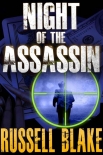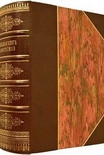The Cutthroat, Clive Cussler [best ereader for manga txt] 📗

- Author: Clive Cussler
Book online «The Cutthroat, Clive Cussler [best ereader for manga txt] 📗». Author Clive Cussler
Davy Collins — Tonsorial practitioner with barbershop in Whitechapel.
Wayne Barlowe — London newspaper illustrator and artist.
London Emily — Manchester laudanum addict, crucial witness.
Lord Strone — British Military Intelligence, Secret Service Bureau.
Abbington-Westlake — British Admiralty, Naval Intelligence, Foreign Division.
Reginald — Espionage shadow.
James Mapes — Actor, Garrick Club member.
Granger — Cruel critic.
Dolly — West End chorus girl, Detective Joel Wallace’s new friend.
Dolly’s mother — Former dancer in Tra-la-la Tosca.
MOVIE MAKERS
Marion Morgan Bell — Isaac Bell’s bride of one year, his beloved confidante, well-known filmmaker.
Mrs. Rennegal — Rough-and-ready Cooper Hewitt lighting designer and operator.
Mr. Davidson — Camera operator.
Kellan — Davidson’s assistant.
Mr. Blitzer — Camera operator.
WALK-ONS
Medick — Actor-impresario, owned previous tour of Dr. Jekyll and Mr. Hyde.
Rufus S. Oppenheim — Theatrical Syndicate boss, Isabella Cook’s husband.
Preston Whiteway — San Francisco newspaper publisher and Marion Morgan Bell’s boss for Picture World News Reels.
Kux — Isaac Bell’s taciturn private car conductor.
Uncle Andy Rubenoff — Wall Street banker gone to Hollywood.
Hazel Bradford — “Billboard in the sky” airplane pilot.
Jimmy Richards, Marvyn Gordon, and Molly —Staten Island wharf rats.
Coroners, assistant coroners, stage door tenders, theater callboys, stagehands, newspapermen and -women, company cops, locomotive engineer and fireman, apprentice Van Dorn detectives
THE INNOCENTS
Anna Genevieve Pape — Stagestruck eighteen-year-old who ran away from home to be an actress. Stage name: Anna Waterbury.
William Lathrop Pape — Anna’s father, a Waterbury industrialist.
Lillian Lent — Boston prostitute.
Mary Beth Winthrop — Springfield, Massachusetts, Christ Church choir soprano.
Beatrice Edmond — Cincinnati continuous vaudeville dancer.
Countless women — Actresses, girls of the street, factory workers, Western dance hall girls, a doctor’s wife, a banker’s wife, a librarian, and others.
PROLOGUE
NEW YORK, AUTUMN 1910
“Medick is dead!”
Jackson Barrett crashed through John Buchanan’s dressing room door, waving the Cognac bottle they kept for opening nights and bankable reviews.
Buchanan was blacking his face for tonight’s Othello—his Moor, opposite Barrett’s Iago. He tossed his greasepaint stick with a jubilant, “Best news we’ve had in a year!”
Nothing personal against Medick. That workman-like actor had struck it rich playing the dual title roles in the old Mansfield–Sullivan dramatization of Robert Louis Stevenson’s Dr. Jekyll and Mr. Hyde. But his sudden death left the gold mine up for grabs, and they had a scheme to grab it with an all-new, modernized Jekyll and Hyde that would clean up on Broadway and launch the richest cross-country tour since Ben-Hur.
They banged glasses and thundered toasts.
“Barrett and Buchanan . . .”
“Present . . .”
“Dr. Jekyll and Mr. Hyde!”
The brandy barely wet their lips. They worked too hard managing the Barrett & Buchanan Theater Company to be drinking men, and their temperate habits kept them ruggedly youthful. Tall and broad-shouldered—“Lofty of stature,” in the words of the New York Sun critic pinned above Buchanan’s mirror—they bounded onstage like athletes a decade younger than their forties. Jackson Barrett was fair, John Buchanan, his near twin, was slightly darker, his hair more sandy than Barrett’s golden locks. Both shimmered with the glow of stardom, and their intense blue eyes famously pierced women’s hearts in the back row of the highest balcony. The ladies’ husbands rated Jackson Barrett and John Buchanan as hearty men’s men—fellows they could trust.
“I’ve been thinking . . .” said Barrett.
“Never a good sign,” said Buchanan.
“What do you say we switch our roles back and forth—keep ’em guessing who’s who. First night, I’m Jekyll, and—”
“Next night, you’re Hyde. Sells tickets, and might even keep you from getting stale.”
“Sells even more if we can talk Isabella Cook back on the stage.”
“Rufus Oppenheim will never allow her.”
Isabella Cook’s husband held the controlling interest in the Theatrical Syndicate, a booking trust with an iron-claw grip on seven hundred top theaters around the country. You could not tour first class without Rufus Oppenheim’s syndicate, and you paid through the nose for the privilege.
“Why did the most beautiful actress on Broadway marry the spitting image of a bald bear smoking a cigar?”
“Money.”
“She would never go with us even if Oppenheim let her,” said Buchanan. “There’s no Jekyll and Hyde role big enough for the ‘Great and Beloved Isabella.’”
“Actually,” said Barrett, “I’ve been tinkering with the manuscript.”
“How?” Buchanan asked sharply, not pleased.
“I wrote a new role for Miss Great and Beloved—the beautiful heiress Gabriella Utterson—which makes her central to the plot. Gabriella sets her cap for our handsome young Jekyll. The audience sees the evil Hyde through her eyes and fears for her.”
Buchanan understood immediately. His partner had gone off half cocked, per usual, but rewriting Robert Louis Stevenson’s stuffed-shirt narrator into a beautiful leading lady was a crackerjacks scheme.
“Any other changes I should know about?”
“Added some biff-bang stuff,” said Barrett.
“Like what?”
“An airplane.”
“Airplane? What will an airplane cost?” They had warred over money since they opened their first theater down on 29th Street.
Barrett said, “Stage manager at the Casino says they’re closing He Came from Milwaukee. They’ll practically give us their biplane if we pay for removing it from the theater. Meantime, you better bone up on your swordplay. We’ll give them a duel they’ll never forget.”
“An airplane makes the play too modern for sword fights.”
“The transformation potion makes Dr. Jekyll hallucinate. Jekyll and Hyde fight a Dream Duel.”
“Jekyll and Hyde onstage together?”
“Brilliant, isn’t it?” said Barrett. “Good and evil battle for each other’s soul.”
“Any more biff-bang?”
“Mr. Hyde escapes a howling Times Square mob on the subway.”
“Jekyll and Hyde is set in London.”
“London’s old hat. I moved it to New York. Jekyll lives in a skyscraper.”
Buchanan worried that erecting, striking, and transporting stage sets for a subway train would cost a fortune. Except a New York subway was not a bad idea if you subscribed to the Weber & Fields theory that audiences were more apt to respond in familiar, “realistic” settings. It worked for laughs. Could they put it across for melodrama?
“We’ll cut down the subway for the tour.”
“Don’t patronize me with your cutting-down!”





Comments (0)